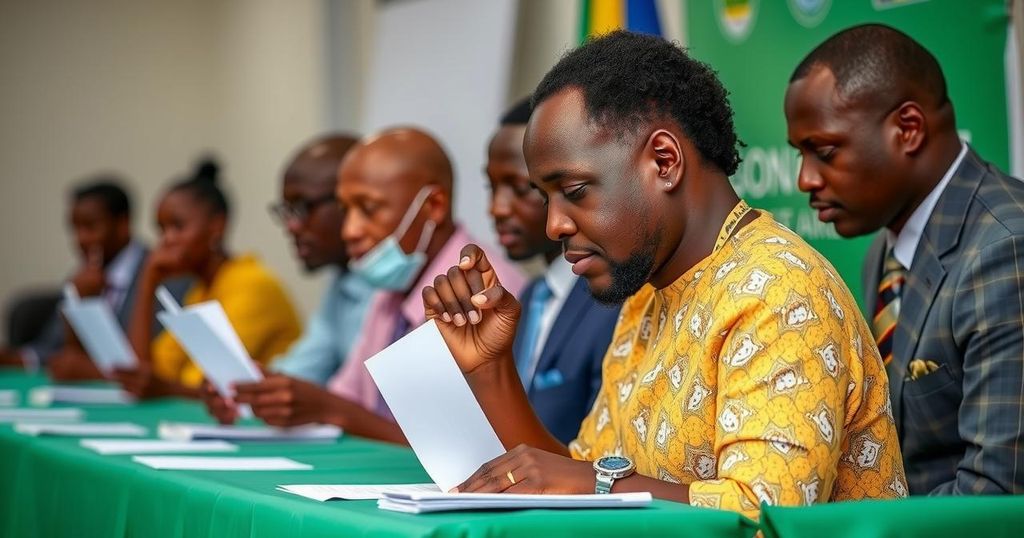Gabonese military rulers declared that 91.8 percent of voters approved a new constitution in a recent referendum. The constitution limits presidential terms and disallows dynastic power transfers, aiming to reshape governance post-coup. Turnout was 53.54 percent amid significant state-led campaigning, with critics labeling the process as untransparent.
The preliminary results from Gabon’s recent referendum indicate strong support for a new constitution, as announced by the military junta. Approximately 86,000 registered voters were encouraged through significant media outreach to express their preferences, with results showing that 91.8 percent voted in favor of the proposed changes. The new constitution outlines a presidency limited to two seven-year terms and disallows prime ministers or dynastic successions, aiming to prevent the re-establishment of the previous ruling family. Voter turnout, recorded at 53.54 percent, was deemed lower than some estimates and reflected in local media coverage focused on the official narrative presented by the junta.
The new constitutional provisions further stipulate that presidential candidates must be of Gabonese descent, which effectively disqualifies the former president Ali Bongo Ondimba and his heirs. Transitional leader Brice Oligui Nguema termed the referendum a “great step forward,” advocating for transparency during the voting process. Although no significant disruptions were reported during the polling across the 2,835 stations, concerns regarding the fairness of the election remain prevalent in public discourse, especially given the degree of government propaganda surrounding the referendum.
Debate continues over the constitution’s implications for political power in Gabon. Critics, including legal experts, argue it is constructed to enable a dictatorial regime under the guise of constitutional governance. General Oligui, who intends to transition power back to civilians, has positioned himself for the upcoming presidential election slated for August 2025. Concerns regarding job availability and governance linger, as the population expresses a mix of optimism and skepticism about the future direction of the nation, especially in light of Ali Bongo’s controversial tenure and subsequent ousting by the junta during a disputed election.
The recent political developments in Gabon follow a military coup that deposed long-time ruler Ali Bongo Ondimba, sparking calls for reform within the nation’s governmental structure. Amidst the calls for a new political landscape, the junta proposed a new constitution aimed at redefining the presidency and limiting the transfer of power. The referendum serves as a pivotal moment for Gabon, as it could either support the junta’s legitimacy or prompt further unrest in light of the country’s history of corruption and governance issues.
In summary, the preliminary approval of Gabon’s new constitution represents a significant shift in the country’s governance, aiming to curb dynastic rule and establish clearer presidential eligibility criteria. While the junta claims a mandate through the referendum, the legitimacy of the process remains challenged by concerns over government influence and civil rights. The outcome will be closely monitored, especially as the nation approaches a decisive presidential election in 2025.
Original Source: www.tiogapublishing.com






